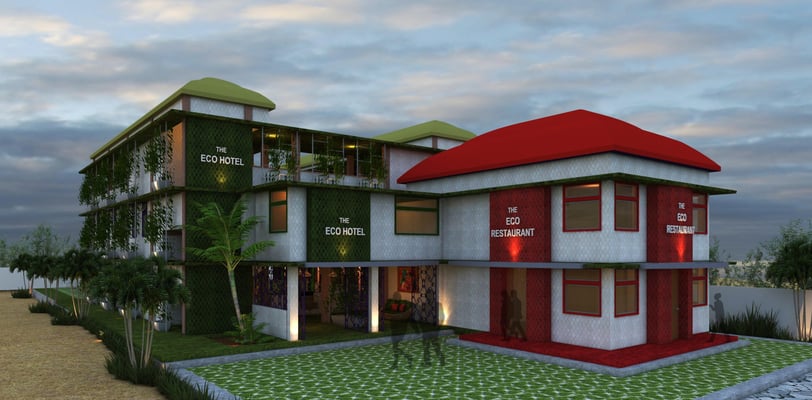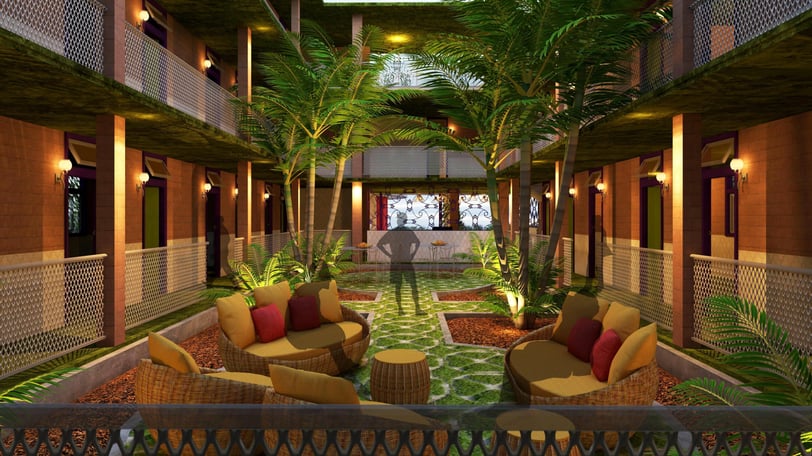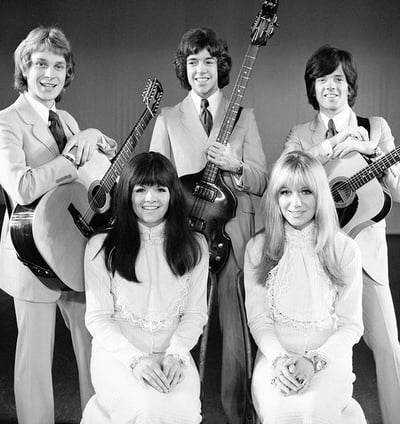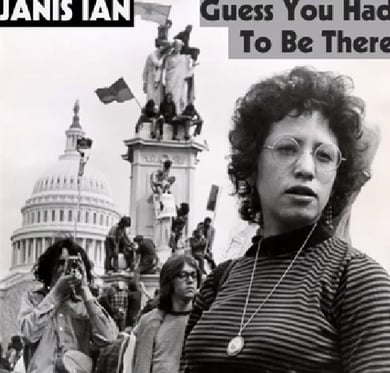NOTE: FOR THE OPTIMUM VIEWING EXPERIENCE WE RECOMMEND THAT YOU VIEW THIS SITE ON A DESKTOP
Values Overhaul: BRICS Mini & Humanity 3.0
A; Karmakar
12/2/202415 min read


It was always begging to happen. Those who understand the power of wonderment experience thought and connected action as part of a unifying continuum. Nothing is separated out as inherently inconsequential - like the 'green' man said, it's all connected. This, I'm told, is not neuro-typical, not a normal way of thinking. Normalcy or entrained mind, influenced by an entrained mind, which in turn is influenced by another entrained mind - is victim to intergenerational programming and this can only happen and thrive with compartmentalisation. Interestingly the CIA came up with the idea of compartmentalisation, within which MK Ultra and the pre Timothy Leary LSD experiments of Dr Hoffman were deeply ensconced. Leary of 'tune-in, 'turn on' and 'drop out' - fame that kicked off the 60's freedom revolution was interested in mental health and ideological emancipation: total freedom by any other name. Leary's influence on the youth led US president, Richard Nixon, to dub him as "The most dangerous man in America".
So, why am I going over recent history, let me give you a clue, it's not to be quaint! The question at hand is, how far have we come in the liberty stakes, if at all, and what does this mean for Jo Blo? To answer that though, we have to fill in one part of the puzzle that is absent from this narrative. Fun, innit?
It's to do with unravelling this compartmentalisation because that process relies on particularising the continuum into discrete unrelated parts. In this way multiple narratives which may contradict and self-cancel can co-exist simultaneously provided these parts develop their own world, rules and belief systems independent of each another. This process splits the mind from a cohesive logical whole into separate time and context related bits. These 'bittive' constructs are particularly susceptible to manipulation because they appeal to different aspects of the compartmentalised mind, i.e., they appear to exist and operate in 'different departments of the same store'. In this way a person can be convinced to act against their own interests, which is effectively one aspect of themselves acting against another, even though they may have the knowledge and experience to expose the contradiction.
Many believe, (see George Orwell's thoughts on 'Doublethink' in the seminal novel, '1984'), that this is partly why we are here; taking on jobs we don't like, building relationships that leave us wanting, shoring up conflict and disappointment through inaction and action alike and complying with laws and orders that are proven to be harmful to our own interests and the interests of those we love.
'Know thyself is the whole of the law' - a mix of at least two essentially disparate concepts but one that serves to home in on the dilemma before us. Compartmentalisation, dualism, psychological conditioning - call it what you like - if you can't distinguish between innate thought and higher instinct (as opposed to lower animalistic fear-based instinct) and received wisdom and manipulation you are going to be exploited, you are going to go along to get along - blind compliance, and here we are.
This is why a psycho-social overhaul for the masses is long overdue - with connected unitive, cohesive coherent thought - we can begin to act in our own interests in a way that not only causes no harm to others but may result in sum gains for the collective. This is often referred to as enlightened self-interest, an uncommon event in a world where everything we learn is handed down from a higher hierarchical authority and thus is not based on our experience, empirical knowledge, or even our own better instincts.
The above explanation exposes why various crises unfold globally, from environmental degradation to social inequities and why so many of us find it difficult to critically analyse how these things occur and how we should assess our priorities. There is an increasing recognition that the traditional metrics of success—material wealth, consumption, and individualism—may not contribute to a genuinely fulfilling existence for individuals and communities alike. Indeed, they may not even be intended to do so but rather fulfil the needs of a different class of people that function outside of our social reality - the power elite.
In contrast, the advent of creative equity promotes a different paradigm, urging us to shift towards more sustainable practices that emphasises, enlightened self-interest (holistic thinking), community well-being, the sharing of resources, and collective creativity.
One of the fundamental (dialectic) syntheses that arise in this context is whether our current values are capable of reflecting our innate human desire for a better society. The acceleration of technological advancements and rapid globalisation in which we were allowed no hand, even though the political matrix is busy convincing us that we live in democracies, has led to a disconnection from foundational principles that once governed human relations and left us bereft of the tools we need to create objects and systems that serve the whole. The need for meaningful interactions and a sense of belonging is more pronounced than ever, drawing attention to the question of what sacrifices we are willing to make to establish a more equitable world that works efficiently and reliably. Such inquiries lead us to consider that our pursuit of progress may have overshadowed critical aspects of our humanity and the collective psyche that sanctions and powers it.
Understanding 'Big BRICS' & Its Implications
Big BRICS is the original coalition of Brazil, Russia, India, China, and South Africa, that rejects the heavy handed uni-lateral and lawless Western empire. It seeks to progressively reshape the global economic landscape toward what they see as a more equal, just and unifying system for the benefit all players. Big BRICS reflects an amalgamation of diverse cultures, political sovereign nations that exercise autonomy whilst mutually co-operating for sum benefits. The move toward wealth redistribution among these nations signal a significant shift away from traditional hierarchical power structures that have largely favoured Western countries.
The rise of Big BRICS signifies not only an economic alliance but also a strategic geopolitical counterbalance to established powers. Former colonies, often marginalised in global dialogues, are now pivotal players in this coalition, challenging the prevailing West-centric narratives. The dynamics within BRICS present an opportunity for these nations to collaborate on issues such as trade, technology transfer, and sustainable development while asserting their rights and preferences. This, in turn, spotlights important questions about sovereignty and economic independence, as nations seek to alleviate historical imbalances of power.
Moreover, the apprehension exhibited by traditional powers concerning the emergence of Big BRICS is palpable. As these countries advocate for reforms in international financial institutions and global governance, established powers may feel an increasing sense of vulnerability. Consequently, this anxiety influences global policies, triggering reactions ranging from economic sanctions to strategic partnerships aimed at curtailing the influence of BRICS in global affairs. just yesterday Donald Trump, US president in waiting, announced 100% trade tariffs on any who seek to divest from the US$, with a direct threat to the Big BRICS alliance.
This type of irrational economic belligerence traditionally spills over into covert coups, proxy wars and other military actions (see John Perkins, "Confessions of an Economic Hitman"), and being thus, is the raison d'etre for Big BRICS and yet Trump's supposed 5D mind perpetuates this adversarial cycle by iterating the same failed methods. Big BRICS has no rational option but to accelerate its decoupling from the dollar and Western hegemony in order to survive on its own terms. The whole process exemplifies the flaws and consequences of compartmentalisation discussed earlier. The implications of this geopolitical evolution extend beyond international relations, impacting socio-economic decision-making at the community level (Mini BRICS). As individuals and local entities perceive the shifting landscape, they begin to understand the relevance of creative equity and collaborative development within their communities, aligning with the broader aspirations of Big BRICS into satellite groups we refer here to as Mini BRICS. Such insights contribute to a nuanced understanding of how the configurations of power are evolving in the 21st century.
The Emergence of Mini BRICS Creativity
The concept of 'Mini BRICS' represents an innovative approach to community building and implies an evolution of personal and social consciousness, focusing on smaller, empowered groups dedicated to creative collaboration and sustainability. These communities prioritise well-being, equity and inclusivity, distinguishing themselves from traditional economic systems by emphasising local solutions to global challenges. Emerging in various parts of the world, the Mini BRICS mindset addresses pressing issues such as social inequality, environmental degradation, and socio-economic marginalisation through a creative lens.
A notable example appears to be the Rise Up initiative in Brazil, where neighbourhoods band together to foster artistic expression and social entrepreneurship. By promoting local artists and encouraging collaborative projects, these communities enhance economic resilience and re-energise cultural vitality. In India, the creative Mini BRICS model is evident in the thriving arts districts, where local artisans and entrepreneurs work hand-in-hand to create sustainable market opportunities that benefit everyone involved.
Furthermore, the principles of Mini BRICS highlight the significance of technology and art in driving innovation. Many of these communities leverage digital and engineering tools to promote their initiatives, thus reaching wider audiences and generating greater impact. This tech-savvy approach enables them to create platforms for knowledge sharing, networking, design, production and collaboration. The fusion of art, technology and industry serves as a catalyst for creative solutions, allowing for more significant societal and practical wealth generating contributions.
In addition, these initiatives are rooted in values that emphasise shared skills, creating ideas to innovation hubs, co-responsibility and mutual support. Members of creative Mini BRICS often engage in decision-making processes that are truly democratic and inclusive, ensuring that the voices of marginalised groups are heard and actionable ideas and processes realised. This model empowers individuals, creates real world opportunities, emphasis autonomy and fosters a sense of belonging and collective identity, which is crucial for long-term sustainability and de-facto capacity building.
A Return to Innocence: For a Society Worth Having
The concept of innocence often evokes a sense of purity and simplicity, representing a time when the complexities of life were less burdensome. In the context of modern society, this notion can serve as a guiding principle for rejuvenating connections within our communities. Embracing creativity within Mini BRICS communities—[Brazil, Russia, India, China, and South Africa]—can lead to transformative social dynamics that promote inclusivity, equity, and collaboration. These communities act as microcosms for broader societal transformation, emphasising our collective duty to nurture and uplift one another.
Collective responsibility is core to the success of these initiatives, as it invites individuals to engage in shared decision-making processes, thus breaking down barriers of isolation and a sense of powerlessness. By nurturing talent and creative potential, by feeding ideas that build rather than destroy, by promoting goodwill and co-operation, Mini BRICS communities can re-engineer our injured collective-consciousness to evolve it a meaningful and socially cohesive culture and 'contributory-brilliance'. When citizens come together to harness innate creativity, fundamentally address the world of ideas rebuilding it is a way that enlightens and empowers, they challenge the status of our external fragmented reality and rediscover the tools to rebuild it into something hopeful. Our 'handlers' have often sought to distort and subvert the things that unify, strengthen and empower 'we, the people', diligently atomising and isolating creatives and those of goodwill but connectivity, empathy and understanding helps us to decolonise and cleanse our minds. When self-aware illuminated individuals form together they set the community-consciousness. Actions that issue forth from the conscious contingent and those who support them bring a higher-logic that regenerates a sense of belonging and sparks the enthusiasm, camaraderie and accountability critical in navigating our deliberately engineered complex and hectic world.
An increasing number of doctors and analysts sum up what the philosopher, Gurdjieff may have referred to as the 'terror of the situation' with this simple illustrative fact, pharmaceutical companies have no interest in making people better - they make people sick - its a great business model all the way from the hospital to the morgue, or, if you prefer, the cradle to the grave - take yer pick.
Re-evaluate: re-define & re-create
Thus one can confidently declare that the landscape of our contemporary society
demands a thorough re-evaluation of the values and standards we accept as a norm.
Additionally, examining our standards for what constitutes success and fulfilment can highlight discrepancies in how different communities experience reality and how we can create opportunities with sum benefits instead of 'boom, bust'n war cycles' that the predator class uses to shape human destiny to disadvantage 'the people' and benefit themselves.
The BRICS concept is a reaction to the current global hegemonic system, the terrible legacies of political and economic colonialisation that affect Russia, Africa, and the Orient often referred to as the global South. The model of self-determination, multi-lateralism, globally applied law and order and universal human rights as embodied in the 1948 declaration has become increasingly attractive to those outside the Anglosphere precisely because they are done with unnecessary wars, poverty, resource depletion and exploitation. The global South which is forming the BRICS knows that the global North threatens the nuclear singularity of mutually assured destruction (MAD) that emerged out of WWII - 'the war to end all wars' if they are unable to enforce their systems of repression and exploitation over them and increasingly over their own populace whether working or not.
BRICS is an acronym for Brazil, Russia, India, China and South Africa; the countries that chose to be non-aligned and promote trade and commerce over conflict, war and subservience to 'the West'.
The idea posited here of Mini BRICS communities reflects groups of people that demand self-determination and a higher functioning, fair-minded, poverty-free, social order. For instance, these communities often innovate and showcase different models through which creative equity can be pursued, allowing for diverse expressions of culture, identity, and mutual support systems but have historically been infiltrated and broken down from within by intelligence agencies and NGO's, and those in service of the Deep State (the continuous hidden government that serves the power elites interests above all else). Mini BRICS communities are a counter to hegemonic manipulation on local and community levels that engage in dialogue around shared values and a socio-political and economic environment that nurtures social optimism, health, well-being, empowerment and independence. These communities can better navigate and act as a corrective force to the challenges posed by our increasingly dystopian world. Collectively, we must embrace this moment of reflection to rethink what is truly valuable and ensure that our pathways toward progress align with our highest ideals, paving the way for a more meaningful future that generates, optimism, liberty and abundance by design.
Artist: Sagim. 'The Maze' Source: https://www.deviantart.com/sagim/art/The-Maze-193306487
Artist: Unknown. 'Insight IV' Source: Unknown








Artist-Designer: Clifton Schooley & Associates. 'Eco 1,47'
Artist-Designer: Clifton Schooley & Associates. 'Eco 1,90'
Artist-Designer: Clifton Schooley & Associates. 'Eco 2,0'
Artist-Designer: Clifton Schooley & Associates. 'Proto-Lounge'
Artist: Julian Marchal. 'Return to Innocence' Source: YouTube


Anup is Media and Design expert for Pearl Bliss Homes. His interests are: art, history, current affairs, philosophy, literature, the environment and humanism. You can comment on his blogs via email info@pearlblisshomes.com.
Why not set the mood for the concluding section by activating the music player?
The Mini BRICS trajectory of thought is a metaphor that emphasises the need for creative equity, better living standards and holistic thought. It encourages a re-evaluation of societal priorities and prompts us to consider how collective efforts can lead to sustainable change and a hope-filled future. The path towards greater equity and a higher quality of life lies in tapping into our creative capacities and a conceptual suppleness that can evade and endure the troubles to come. Just now [5.11.2024] I listened to the enigmatic radio show presenter John B. Wells of 'Caravan to Midnight' fame emit some of the sagest words I've heard in many a moon.
By returning to a sense of innocence with no agendas other than those declared, we are at liberty to rediscover free thought, to rekindle communal growth and mutual-responsibility. We can employ solutions based on facts, science, metaphysics and philosophy without compromising our values. In this old new-world we realise not everything is about us, but rather about our place within the family, community and humanity at large. In conclusion, as we explore and engage in this collective journey, we can envision a brighter future that restores connection and re-ignites hope across communities. Compartmentalisation can finally be consigned to the dust-pit of primitivist psychology where it belongs and if we are bold enough we can strive toward our heritage in waiting, authentic human being, humanity 3.O.
Wells quoted the phrase "Capitalism is Communism". If so, have these artificial constructs not kept 2 parts of teh world in conflict, fear wars and suspicion for over a century? Cui Bono? Divide and rule anyone. Well since these constructs are paradigmatic and been the source of so much grief for the masses let's deconstruct that a little.
Capitalism (itself a misnomer, as the prevailing system is one of predatorial disaster monopoly as Naomi Klein partially describes - not capitalism) maintains a dictatorial, amoral and oppressive overclass that lavishes in the 'private ownership' of our collective resources and protects its interests with standing armies, Gestapo type agencies (the police, FBI, CIA, MI6 et al), and thus cannot be challenged without severe consequences.
Communism maintains a dictatorial amoral and oppressive overclass through government control that lavishes in private ownership of our collective resources and protects its interests with standing armies, Gestapo type agencies (the police, FBI, CIA, MI6 et al), and thus cannot be challenged without severe consequences.
Socialism theoretically falls somewhere in the middle and yet the last great socialist system with which the overwhelming populace was relatively content existed in the former Yugoslavia.
Does that posit a clue as to why the West had to take it down? We really need to use our 'free' mental powers to analyse and understand the truth behind the propaganda so we can see the real agenda that has brought us to this catastrophic juncture. We need open minds, no prejudice, just to focus on the facts after you've uncovered them.
Artists-The New Seekers: Song: 'I'd Like to Teach the World to Sing'':https://www.youtube.com/watch?v=sXOG_NUNQhc
Boomer decadence, you may well say, but I want to take this opportunity to let you into some fairly private thoughts of mine because I've never actually heard anyone say what I'm about to excepting in private conversations. Firstly, I'm not a boomer - I was too late for that dubious honour but I was brought up in the 60's.
We were immigrants, not rich although we came from the richest country in the world until Ol' Blighty drained our coffers of trillions . We were poor working class as were so many in the post war years.
The thing that struck me though, very often, was the music. My god - many times I couldn't believe what I was hearing even at 4 y.o. So often I felt I had been born in some kind of heaven; 'Layla', 'Lean on Me', 'If Not For You', 'My Sweet Lord', 'Son of a Preacher', 'Delta Lady', 'Country Road', 'Morning Has Broken', 'She Loves You', 'Walking Back To Happiness', 'Ghost Riders in the Sky', 'Shakin' All Over'... need I say more? Well, this song was just another example - even at 4ish, I could not doubt the world was to become a beautiful place - indeed our fortunes improved in concert with the endless flow of musical inspiration. For those that simply can't comprehend that state of near ecstasy and prefer to eschew its innocence and hope I refer you to another lyrical icon, Janis Ian, who sings retrospectively about her experience of that time in 'Guess You'd Have to be There".




I guess you would, but let me give you a bit more insight.
So many songs were about change, beauty, love and celebration, Everything was analogue/tube i.e., pure and natural and sounded so much better. Music was much more energised, engaging and inherently pioneering and the personalities were on another level without ever having to resort to smut and profanity. Many songs were spiritually inclined and culturally rich, like 'Family Affair', 'In the Ghetto' , Ruby' and 'Gypsies, Tramps and Thieves'.
It was a revolutionary period. As Marc Bolan sang, we truly were children of the revolution [it's sad so many of us sold out, but not all of us did]. The optimism and hope, the expose of artifice and pretence is indelible to we who absorbed the message. It's no wonder when we look around now we balk in horror at the corruption, dumb, thrilled down mimicry and universal ignorance. I make sport of counting any who do not play with their 'sucking on mommies teet' cellphone security blankets. So far it's 1 - 3 in 6 months! And the art of conversation?
OK, so what's my point...it's all about how we want to live and what we accept. Are there any hills worth dying on anymore? Sure there are because idealism and vision is older than nihilism and lack of imagination. Hey 'Jo', I only ever had one message so listen up before it's too late will ya, it's our world - let's take it back and make it in our image, or some one else'll make it in theirs ; {. Peace Out
Artist: Janis Ian: Song: 'All Roads to the River': https://www.youtube.com/watch?v=YThcOF-pokQ&list=PLGxaqBTVsgeMeuxFU3oa1LED1BRC0DYpm
Dream
Crafting homes for living, growing, and thriving.
Design
Safety
info@pearlblisshomes.com
Skype: live:zro_46
© 2024. All rights reserved.
